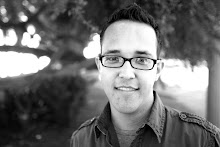The latency of God should come as no great surprise. The fact that we believe in God suggests that we do not conclusively know that God is there. We cannot see God. We cannot hold a conversation with God. We have no proof that God exists. Sure, some people have visions, hear God speak, and believe that the natural world is proof enough, but all of that is debatable. What this reveals is something that should be obvious--that to some degree God is hidden. Because we do not fully know who God is, where God is, and what God is doing, we are left to guess (and read and pray and theologize) about it.
We believe God can work miracles, can move mountains, can change hearts, and can save the world, but we have no way of knowing whether God is really doing those things. Thus, to us as limited humans, God exists as potential. God potentially exists, potentially does supernatural works, and potentially loves us. We choose to believe those things--it's just that we have no proof.
Describing God as latent neither denies God's existence nor undermines God's attributes--it just recognizes that God is not readily evident. It is honest. We can makes claims about God until theology runs out of our ears, but those claims are no more valid than the claims made by atheism. We've all met people who count their lucky stars rather than thank God, people who see emptiness where we see presence. God is not evident, not obviously manifest. Atheists have just as much evidence as we have; they have just as many compelling stories about injustice and chaos as we have stories of providence. God remains a question, a possibility. That is what latency describes.
What does latency mean for faith? It has no new ramifications. If we are to see God it must by faith. If we are to know God it must be by faith. It forces us to look into the depths of uncertainty and acknowledge faith for what it is--a risk. Latency requires honesty and humility. It causes us to respect people with different ideas than our own--there is no way for us to determine (at least in the short term) who is right. It means that we must embrace faith as a personal decision, not as an inevitability. It means that we must strive and struggle with it. Faith is not simple because knowing God is not simple. We are left to work out our faith with fear and trembling in the face of our latent God.
Read my first post on this subject: "Acknowledging a Latent God."
Thursday, November 1, 2007
Subscribe to:
Post Comments (Atom)


No comments:
Post a Comment
Let me know what you think....